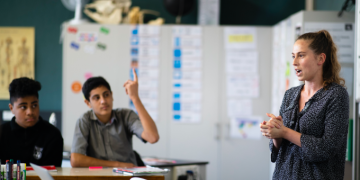Research and resources
Research, digital resources and tools to further support the teaching and learning of financial capability.







Resources for financial identity and sustainability
Resources for Financial Identity
English Online
English Online is the website for teachers of English in New Zealand. It also has an online community discussion forum.
Financial Capability
This section from New Zealand Curriculum Online outlines pedagogical approaches, tools and examples for teaching financial capabilities at all levels of schooling.
Financial Capability Progressions
The Financial Capability Progressions set out suggested curriculum based learning outcomes across a range of learning areas. The learning outcomes in the progressions are aligned to The New Zealand Curriculum levels 1-8.
Social Sciences Online
Social Sciences Online is the website for teachers of social sciences in New Zealand.
Resources for Financial Sustainability
Approaches to Social Inquiry
Guidelines to support a social inquiry approach to teaching and learning. Teachers can adapt ideas to support their own social inquiry approaches.
Education for Sustainability
This section from New Zealand Curriculum Online outlines pedagogical approaches, tools and examples for teaching sustainability education in New Zealand schools.
Financial Capability
This section of New Zealand Curriculum Online outlines pedagogical approaches, tools and examples for teaching financial capabilities at all curriculum levels.
Insurance Council of New Zealand
The ICNZ works with insurance providers to provide services that the public can trust. They also educate and advise consumers on how to manage risk in their lives as well as having a focus on building the reputation of insurance services in New Zealand. This website has resources for all types of insurances.
MOE Financial Capability Progressions
The financial capability progressions set out suggested curriculum-based learning outcomes across a range of learning areas. The learning outcomes in the progressions are aligned to achievement objectives in The New Zealand Curriculum levels 1–8.
NZmaths
The home of New Zealand maths education. The site provides maths resources for curriculum levels 1–8, including some specifically related to financial literacy.
Social Sciences Online
Social Sciences Online is a website for social sciences teachers in New Zealand. “The social sciences learning area is about how societies work and how people can participate as critical, active, informed and responsible citizens”. The New Zealand Curriculum (2007).
Sorted
This Te Ara Ahunga Ora Retirement Commission website is a rich source of information and can be used to explore the financial sustainability themes of insurance, investment, KiwiSaver and retirement.
Taking Part in Economic Communities
This Building Conceptual Understanding in Social Science (BCUSS) resource is a useful supporting resource for the integrated unit on financial sustainability. The suggested teaching and learning experiences emphasise the values and perspectives that underpin financial and economic decision-making using a social inquiry approach.
Te Ara Ahunga Ora Retirement Commission (Te Ara Ahunga Ora)
Te Ara Ahunga Ora's mission is to build the financial capability of New Zealanders of all ages, helping them reach their life goals and arrive at retirement in good financial shape. As part of delivering their mission, Te Ara Ahunga Ora provides a comprehensive resourced website with financial tools, guides, videos, blogs, readings and research.
References and readings for Financial Identity
Ministry of Education (2015), PISA Collaborative Problem Solving Report. Wellington, New Zealand: May, S.
OECD (2015), OECD/INFE Core competencies framework on financial literacy for youth
Westpac Massey Fin-Ed Centre (2016), Spending Habits Of Māori Women. Auckland, New Zealand: Wood, P.
Westpac Massey Fin-Ed Centre (2012), How Young New Zealanders Learn About Personal Finance: A Longitudinal Study. Auckland, New Zealand: Stangl, J. & Matthews, C.
Westpac Massey Fin-Ed Centre (2019), Young New Zealanders And Retirement Planning: A Longitudinal Study Update. Auckland, New Zealand: Dr Claire Matthews, Dr Michelle Reyers, Dr Jeffrey Stang, Dr Pushpa Wood ONZM
Te Ara Ahunga Ora Retirement Commission (2013), Financial Knowledge and Behaviour Survey.
Whitney, L., May, S., & Lamy, M (2014), PISA 2012: New Zealand financial literacy report.
Victoria University (2018), Financial Survival Guide.
References and readings for Financial Sustainability
OECD (2015), OECD/INFE Core competencies framework on financial literacy for youth
OECD (2016), OECD/INFE Survey of adult financial literacy competencies
Westpac Massey Fin-Ed Centre (2016), Spending Habits Of Māori Women. Auckland, New Zealand: Wood, P.
Westpac Massey Fin-Ed Centre (2012), How Young New Zealanders Learn About Personal Finance: A Longitudinal Study. Auckland, New Zealand: Stangl, J. & Matthews, C.
Westpac Massey Fin-Ed Centre (2016), Young New Zealanders and Retirement Planning: A Longitudinal Study Update. Auckland, New Zealand: Wilson, B., Stangl, J. & Matthews, C.
Financial Markets Authority & Te Ara Ahunga Ora Retirement Commission & Colmar Brunton (2014), New Zealand Financial Behaviour Index: Wave Seven-November 2014
Te Ara Ahunga Ora Retirement Commission (2014), New Zealanders aged 50 years plus 2015 Expectations for and experiences of retirement
Whitney, L., May, S., & Lamy, M (2014), PISA 2012: New Zealand financial literacy report.



Download PDF
Māori Medium Education
Written in te reo Māori with resources aligned to Te Marautanga o Te Aho Matua and Te Marautanga o Aotearoa.

















